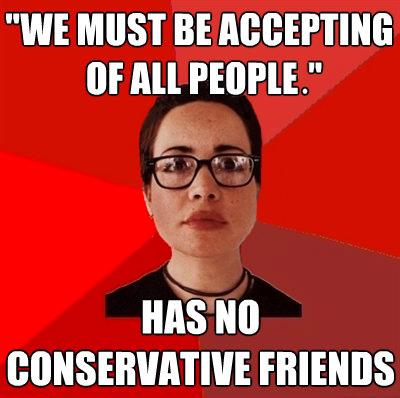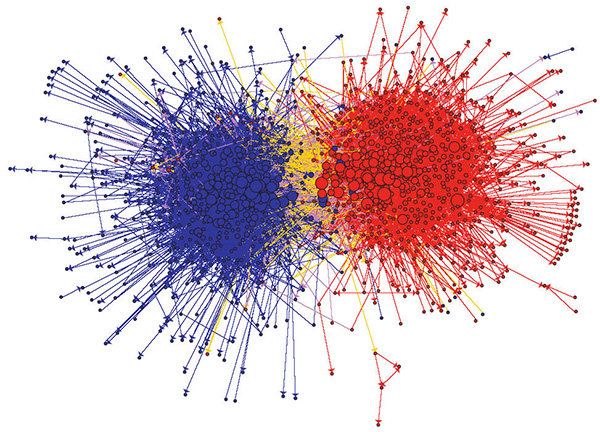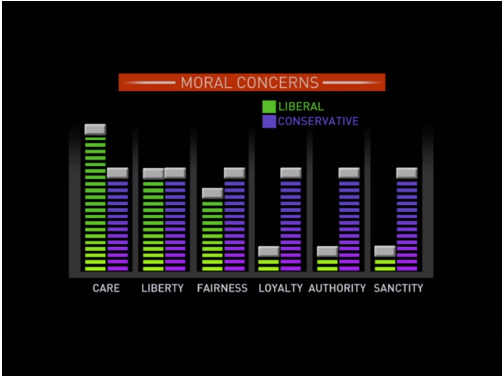Nope, I’m not talking about gay marriage, but I will come back to that. I am actually talking about contraceptives. Let me explain. See, I have been mulling over the implications of Haidt’s moral foundations, which suggest that some of the cultural impasse we face in America is due to liberals and conservatives valuing some moral foundations differently. For instance, conservatives value loyalty much more than liberals. But Haidt’s overall point is that both sides should stop demonizing each other and recognize that the other side does have a moral compass, just one that is calibrated differently.
I have an old friend from my Buffalo days, let’s call him Al for the sake of this argument, who frequently beats up on conservatives. Al is a good liberal and solid atheist and I have always tended to agree with his injunctions against the right. Responding to the recent Supreme Court decision in which companies are allowed to exercise religious views, Al pointed out that conservatives seem to hate the idea of consequence-free sex, and this gave me pause. It sounds plausible, if damning, on the surface of it. But then I considered how Haidt would respond, and I tried to find a way to justify this position. After all, I know smart, rational conservatives here in the Bay Area, and they often make the case that liberal values tear apart our traditional social fabric. Normally, I would say, “Eh, no great loss if they do,” but I decided to seriously entertain this idea.
So I thought, “Ok, in what way is ‘consequence-free sex’ bad?” And it occurred to me that contraceptives actually help undermine the institution of marriage. Consider this: In the absence of contraceptives, women will inevitably end up with children. Marriage has value for women in this scenario since it offers a committed partner who is contractually obligated to help care for the child. Now that we have contraceptives, marriage arguably has lost this particular advantage. A woman doesn’t need to have children if she doesn’t want to, and thus won’t need marriage for that benefit. And I thought, “Huh! That was unexpected.”
The most universal and compelling benefit of marriage is that married people are healthier and live longer. So this is a desirable, but perhaps non-obvious, outcome of marriage that helps everyone.
Yes, we need contraceptives because they grant us freedom and prevent unwanted pregnancies, which are devastating for both mothers and children. It’s ridiculously unrealistic to expect humans to simply refrain from sex. But who cares? What is the actual value of marriage? Well, it turns out that marriage as an institution provides surprising benefits. The most universal and compelling benefit of marriage is that married people are healthier and live longer. Married men do benefit more than married women, but women enjoy some longevity benefits from marriage too. So this is a desirable, but perhaps non-obvious, outcome of marriage that helps everyone.
Of course there are other benefits. Single women are poorer that married women, so women seem to get some economic benefit from marriage. Ensuring women equal pay might nullify this. Interestingly, men and women who have a partner that does the housework actually make more money. Again the effect is more pronounced in men, probably due to wage inequality. In addition, children born out of wedlock have much worse social outcomes, such as cognitive problems and aggressive behavior. Of course the causal arrow might be backward here since it’s been shown that higher IQ* people are more likely to have long-term relationships.
I am not married myself and my feminist girlfriend cites patriarchy as the reason. We have lived together since 1997, and we would be married by common law in other states. I certainly don’t want to try to shove marriage down the throats of women, let alone feminists. But since marriage has all these social and health benefits for everyone involved, it seems that we should try to find non-coercive ways to reward marriage using positive reinforcement. (Negative reinforcement simply doesn’t work.) So perhaps we could offer real tax breaks to married couples or something.
Also, my girlfriend believes that monogamy can be a stifling thing after many years together. (In fact her conviction makes me a bit suspicious.) But seriously, I am sympathetic to this point of view, and it seems that the old French tradition of older married couples having discrete, outside liaisons might be promoted to counteract this problem. I find it silly when I see older couples breaking up over a sexual indiscretion, casting aside relationships that took decades to forge.
It seems that conservatives often use crude, outdated tools to try to fix social problems, and the liberal response is to attack the tool and ignore the problem that still needs solving.
Correct me if I am wrong, but liberals don’t seem to be very interested in programs to promote or bolster marriage as an institution. And this brings me to the larger problem: It seems that conservatives often use crude, outdated tools to try to fix social problems, and the liberal response is to attack the tool and ignore the problem that still needs solving.
Sure, one could argue that fixing pay inequality and offering child care could solve a lot of these problems. But those solutions don’t address the health or even the emotional benefits of marriage. The state can’t really step in and serve as your personal life companion. Economic policy cannot replace a committed partner who sticks with you to share your ups and downs, both offering you care and someone for you to care for. A reason to keep going, some deeper meaning in life. Somebody slap me now, please.
Imagine what would happen if liberals came out strongly in favor of this position. I would predict that this would undermine the objections of conservatives to a lot of liberal ideas like free contraceptives or legalizing gay marriage.
So yes, I will now assert that marriage is a Good Thing in its own right. But imagine what would happen if liberals came out strongly in favor of this position. I would predict that this would undermine the objections of conservatives to a lot of liberal ideas like free contraceptives or legalizing gay marriage. Of course the frothing fringe will still stamp their feet in protest, but I would bet that the moderate middle and center right would be more disposed toward these liberal ideas if liberals could offer some ways to mend the social fabric.
My friend Al berates me for suggesting compromise with these irrational people that believe in the imaginary man in the sky. But I assert that my approach actually disarms religious solutions, such as making it harder to get contraceptives, by offering an alternative. I actually do agree that liberal values undermine tradition and the old social order. That’s generally a good thing. But conservatives rightly point out that this disruption causes some problems that were previously solved by institutions like marriage. It would be in everyone’s best interest to heed these concerns and work together to find solutions, instead of just ignoring the problems.
* For people who oppose the idea of an IQ (intelligence quotient), I am perfectly happy to replace that term with “obedience quotient.”






